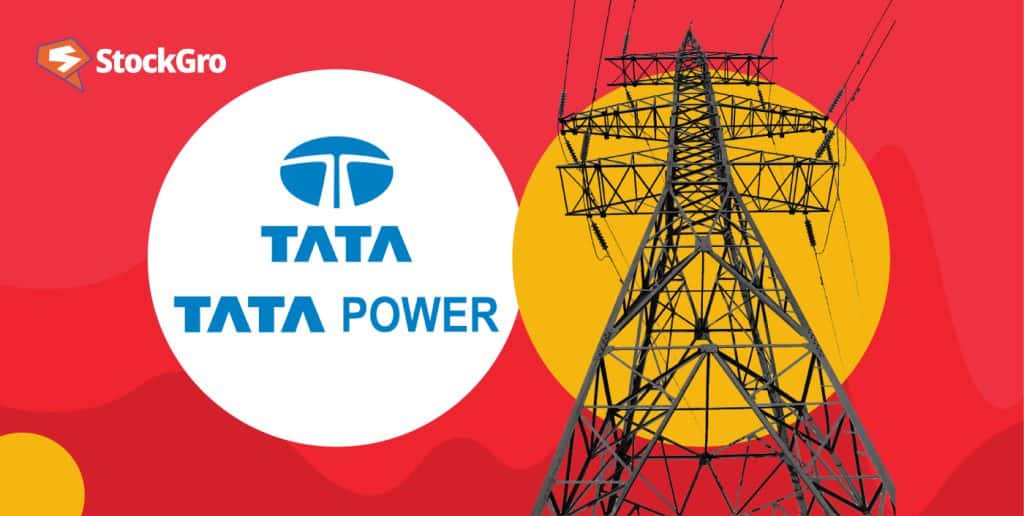
Tata Power, a flagship company of the Tata Group, is one of India’s largest integrated power companies. It operates across the entire power value chain, including conventional and renewable energy, power services, and next-generation customer solutions such as solar rooftops, EV charging stations, and home automation.
With a rich legacy spanning over a century, Tata Power is committed to driving sustainable growth and providing reliable power solutions to millions of customers across the country.
It recently announced its financial results for the first quarter of the fiscal year 2024-25 (Q1 FY25). The company has showcased remarkable growth, but opinions among brokerages remain divided.
This article delves into the key financial metrics, brokerage perspectives, and the strategic initiatives driving Tata Power’s growth.
Also read: Johnson Controls Hitachi Q1 results FY25
Record-high profit and consistent growth
Tata Power reported a consolidated net profit of ₹1,189 crore for Q1 FY25, a 4% increase from the ₹1,141 crore recorded in the same quarter last year.
This achievement marks the company’s 19th consecutive quarter of profit growth, highlighting its sustained business momentum and strong operational performance across various sectors.
Revenue and EBITDA performance
Revenue from operations rose by 12% year-on-year (YoY) to a record high of ₹16,810 crore. Similarly, the company’s Earnings Before Interest, Taxes, Depreciation, and Amortization (EBITDA) increased by 11% YoY to ₹3,350 crore.
This growth is attributed to Tata Power’s comprehensive business expansion and robust order pipeline.
Also Read: Kansai Nerolac Paints Q1 results key highlights
Sector contributions and strategic initiatives
Tata Power’s diverse portfolio, including Generation, Transmission & Distribution, and Renewables, contributed significantly to its profit. These sectors collectively accounted for 84% of the net profit in Q1 FY25, compared to 72% in the same period in FY24.
The company’s clean and green installed capacity stands at 6.1 GW, with an additional 5.3 GW under development.
Renewable energy and solar projects
Tata Power is well-positioned to capture a 20% market share in the residential rooftop segment, bolstered by its new solar manufacturing facility and a strong pan-India channel partner network.
The company’s focus on solar energy is part of its broader strategy to advance sustainable and clean energy solutions.
Also read: The best banks in India: Leading the way in finance
EV charging solutions
The company has made significant strides in the electric vehicle (EV) sector, becoming the first EV charging solutions provider to surpass the installation of 1 lakh home EV chargers. Tata Power also boasts a growing network of over 5,600 public and captive chargers across India, reinforcing its commitment to sustainable mobility solutions.
Quarterly performance (Amount in Cr):
| Quarterly | Mar 2024 | Dec 2023 | Sep 2023 | Jun 2023 | Mar 2023 |
| Sales | 5,774 | 4,960 | 4,926 | 5,014 | 5,192 |
| Other Income | 764 | 705 | 469 | 234 | 443 |
| Total Income | 6,539 | 5,665 | 5,395 | 5,248 | 5,635 |
| Total Expenditure | 5,038 | 4,361 | 4,176 | 4,199 | 4,439 |
| EBIT | 1,500 | 1,304 | 1,218 | 1,049 | 1,196 |
| Interest | 548 | 538 | 533 | 587 | 597 |
| Tax | 214 | -80 | 158 | 51 | 152 |
| Net Profit | 737 | 846 | 527 | 410 | 446 |
Brokerage perspectives on Tata Power
Despite the positive financial performance, brokerages remain divided on Tata Power’s outlook. Both CLSA and Jefferies have issued ‘underperform’ ratings for the company, with target prices set at ₹297 and ₹325 per share, respectively.
CLSA’s concerns
CLSA attributes the modest profit growth in the April-June quarter to reduced wind utilisation rates. This factor, combined with the long-term financial burden of the Mundra power plant, has led to a cautious outlook.
Source: SBI Q1FY25 Investor Presentation
Jefferies’ viewpoint
Jefferies has highlighted concerns over execution delays and ongoing issues with the Mundra plant. The Mundra plant, which operates on imported coal, has faced operational losses since its commissioning in March 2013 due to its inability to pass additional fuel costs to customers.
However, Tata Power’s management indicates that the worst of these losses may be over, thanks to weaker coal prices and government advisories.
Financial drain of Mundra Plant
The Mundra power plant continues to be a significant financial burden for Tata Power. However, recent management statements suggest that the impact of these losses might lessen due to favorable market conditions and regulatory support.
Future outlook and strategic goals
Tata Power is poised for continued growth, driven by its strategic initiatives and robust order pipeline. The company’s planned capital expenditure for this financial year is ₹20,000 crore, focusing on new and emerging clean energy technologies.
Hydropower projects
The company is harnessing the potential of hydropower through the development of the 600 MW Khorlochhu power project in Bhutan and the upcoming 2,800 MW pumped hydro storage plants in Maharashtra. These projects are expected to contribute significantly to Tata Power’s clean energy portfolio.
You may also like: ITC Ltd Q1 results analysis
Market share and regulatory support
Tata Power’s Odisha distribution business has achieved considerable reductions in AT&C losses, contributing to robust EBITDA growth. Regulatory support, such as the recognition of ₹5,788 crore in regulatory assets by the Delhi Electricity Regulatory Commission for Tata Power Delhi Distribution Ltd, further strengthens the company’s financial position.
Conclusion
Tata Power’s Q1 FY25 results reflect strong financial performance and strategic growth across its business segments. While brokerages remain cautious due to concerns over valuations and operational challenges, the company’s focus on renewable energy, EV infrastructure, and strategic projects positions it well for future growth.
As Tata Power continues to expand its clean energy initiatives and leverage regulatory support, it remains a key player in India’s evolving power sector.
By staying committed to operational efficiency and sustainable growth, Tata Power is not only enhancing its financial performance but also contributing to India’s transition towards a greener and more sustainable energy future.

